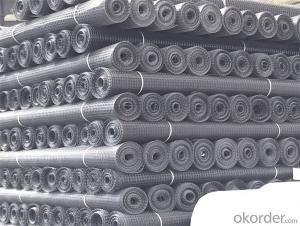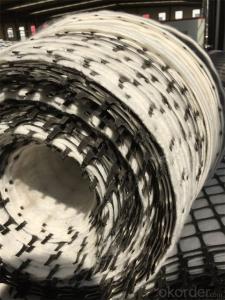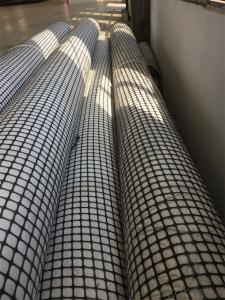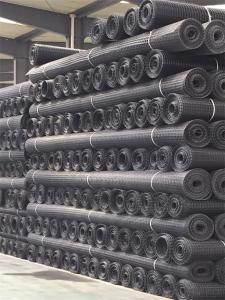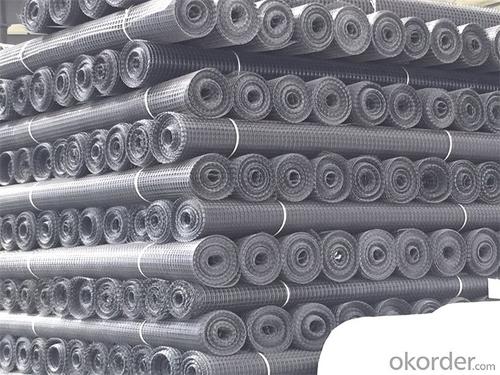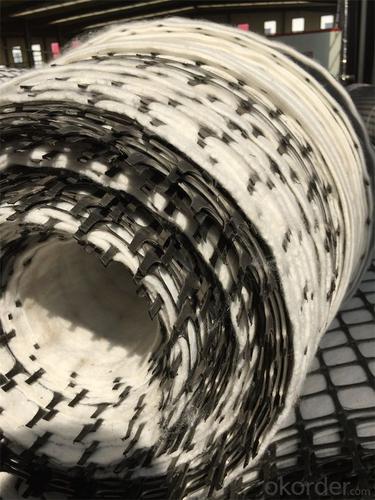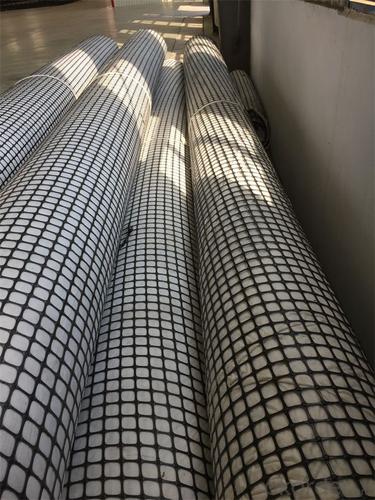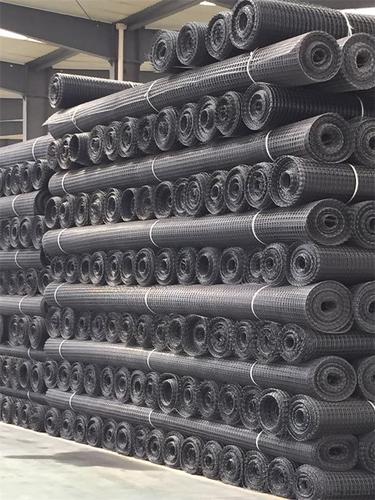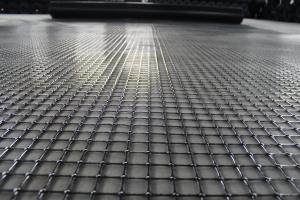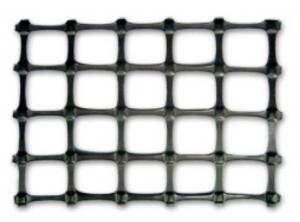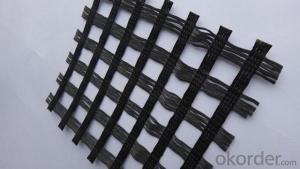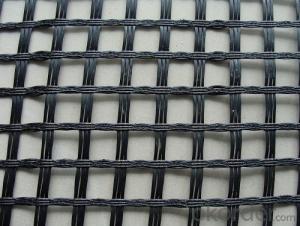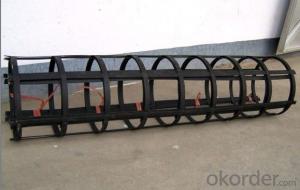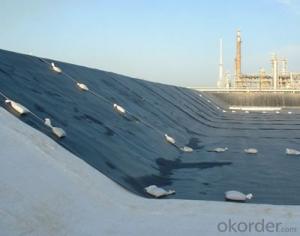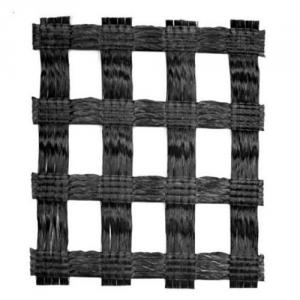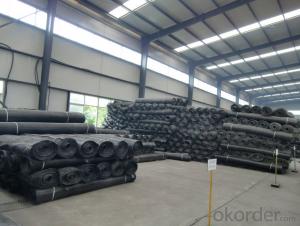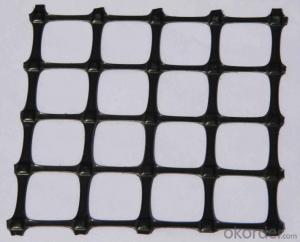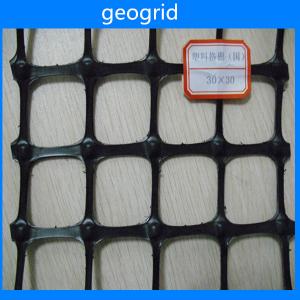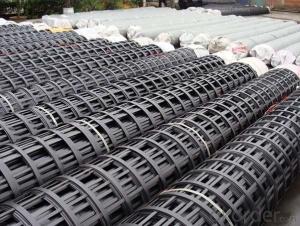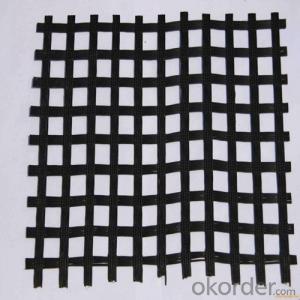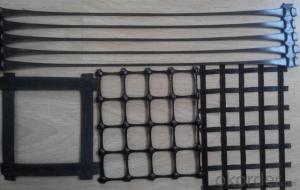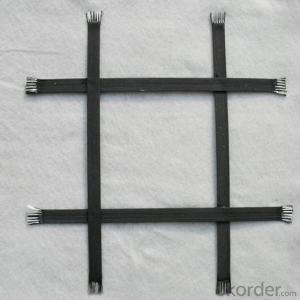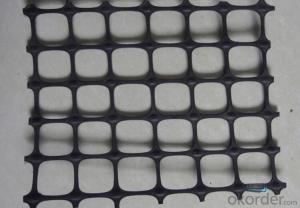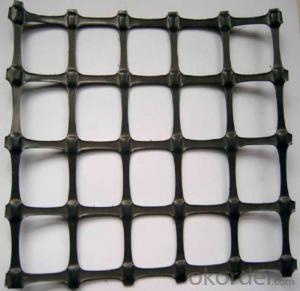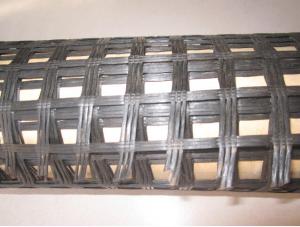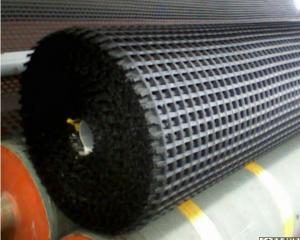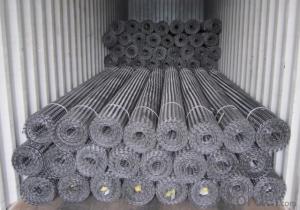Tencate Mirafi PP Biaxial Plastic Geogrid
- Loading Port:
- Qingdao
- Payment Terms:
- TT OR LC
- Min Order Qty:
- 5000 m²
- Supply Capability:
- 2000000 m²/month
OKorder Service Pledge
OKorder Financial Service
You Might Also Like
Specifications of Geogrid:
PP biaxial plastic geogrid is manufactured from polypropylene; it is produced through the process of extruding, punching, heating, longitudinal stretching ad transverse stretching.
Applications of Geogrid:
Make reinforce treatment for various kinds of soft soil foundation to evenly distribute load stress and reduce uneven settlement, not easy to generate static electricity, and flammability property good in the coal mine. It is easy to wash coal.
Used in highway, railway, port, airport and municipal project. Support in the recovery working face of coal mine and roadway in the coal mine.
Index Properties | Test Method | Unit | GG1515 | GG2020 | GG3030 | GG4040 |
MD TD | MD TD | MD TD | MD TD | |||
Polymer | -- | -- | PP | PP | PP | PP |
Minimum Carbon Black | ASTM D 4218 | % | 2 | 2 | 2 | 2 |
Tensile Strength@ 2% Strain | ASTM D 6637 | Kn/m | 5 5 | 7 7 | 10.5 10.5 | 14 14 |
Tensile Strength@ 5% Strain | ASTM D 6637 | Kn/m | 7 7 | 14 14 | 21 21 | 28 28 |
Ultimate Tensile Strength | ASTM D 6637 | Kn/m | 15 15 | 20 20 | 30 30 | 40 40 |
Strain @ Ultimate Strength | ASTM D 6637 | % | 13 10 | 13 10 | 13 10 | 13 10 |
Structural Integrity | ||||||
Junction Efficiency | GRI GG2 | % | 93 | 93 | 93 | 93 |
Flexural Rigidity | ASTM D 1388 | Mg-cm | 700000 | 1000000 | 3500000 | 10000000 |
Aperture Stability | COE Method | mm-N/deg | 646 | 707 | 1432 | 2104 |
Dimensions | ||||||
Roll Width | -- | M | 3.95 | 3.95 | 3.95 | 3.95 |
Roll Length | -- | M | 50 | 50 | 50 | 50 |
Roll Weight | -- | Kg | 39 | 50 | 72 | 105 |
MD denotes Machine direction. TD denotes transverse direction. | ||||||
Property of Geogrid:
1.) Improve roadbed bearing capacity,enlarge road lifetime.
2.) Prevent road collapse and crack
3.) Prevent soil and water loss in slope
4.) Could replace steel-plastic geogrid in coal mine.
Packaging & Delivery
| Packaging Details: | Rolls in bulk, |
| Delivery Detail: | 7 days after recipt buyer's deposit |
FAQ:
1. How to order your geogrid ?
a). Tensile strength in warp & weft direction
b). Grid size
c). Width and length
d). Quantity
2. Payment term .
a) TT
b) LC AT SIGHT
c) cash
d) 30% contact value as deposit ,the blance 70% be paid after received the copy of bl .
3. Delivery time
a) 19-25 days after received your depsit .
4. What is MQQ ?
a) 2500 m2 as MQQ , we can also produce sample for you .
Geogrid Show:
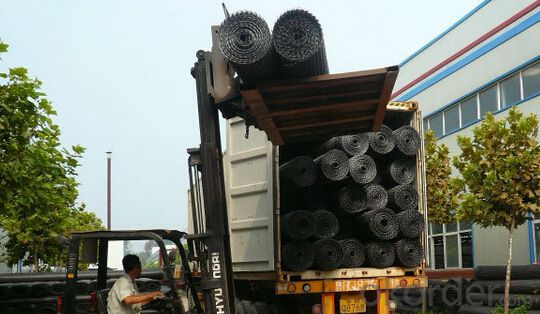
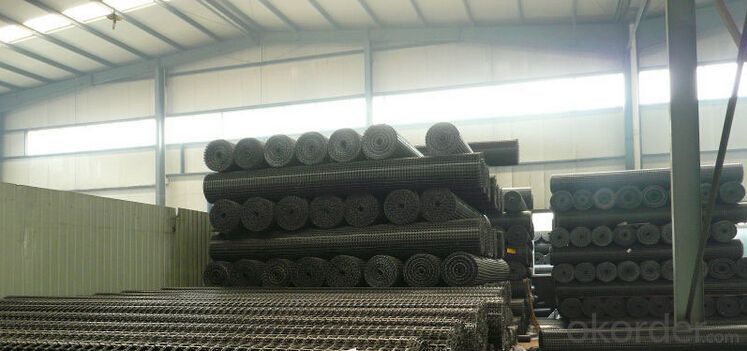
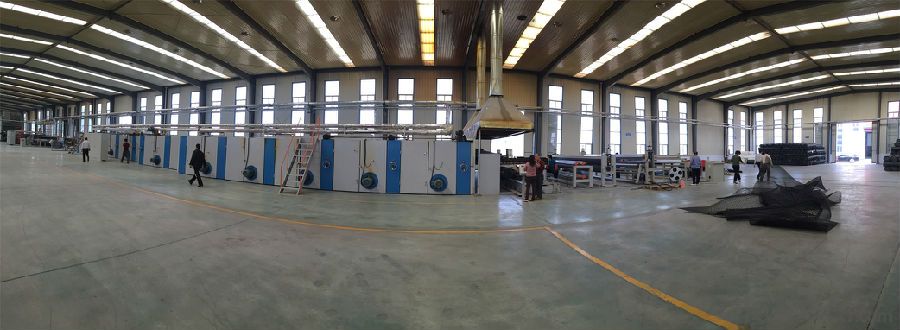
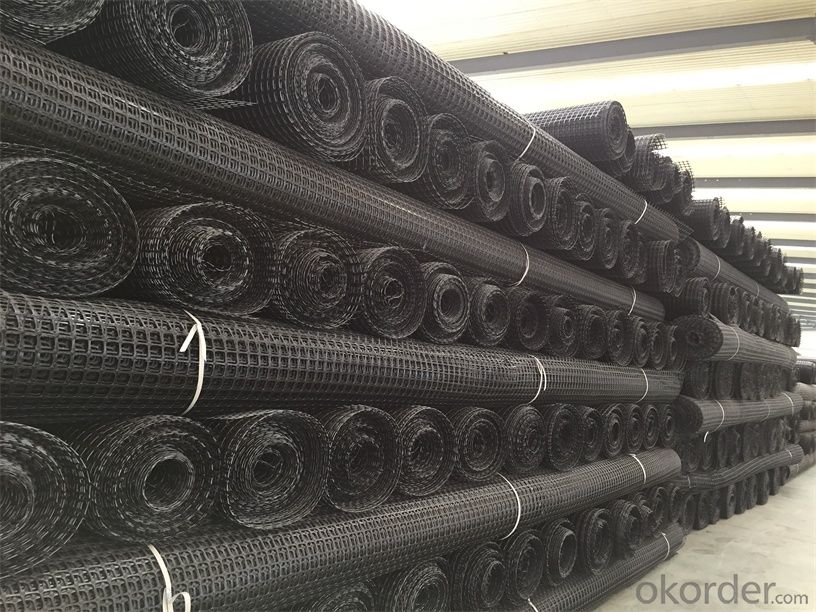
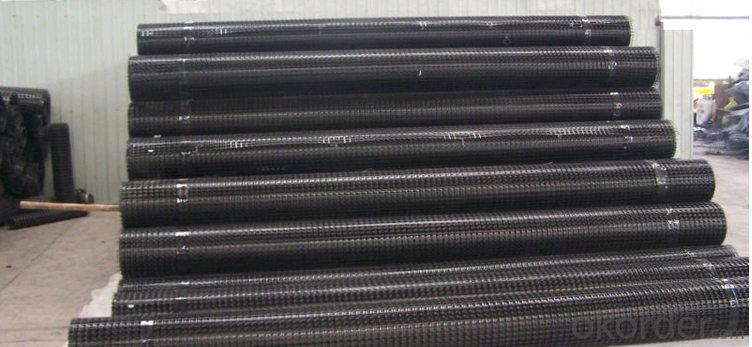
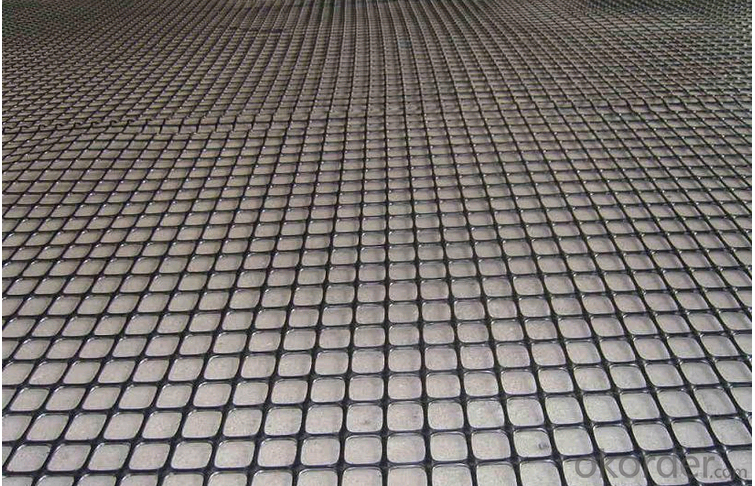
- Q: Can geogrids be used in temporary erosion control applications?
- Yes, geogrids can be used in temporary erosion control applications. They are often used to stabilize and reinforce soil in areas prone to erosion, such as construction sites or temporary access roads. Geogrids provide strength and stability to the soil, preventing erosion and promoting vegetation growth.
- Q: What is the meaning of two-way 50kN geogrid
- Ministry of industry standards
- Q: How are geogrids installed in construction projects?
- Geogrids are typically installed in construction projects by first preparing the ground surface and ensuring it is compacted and leveled. The geogrid is then laid out on the prepared surface and secured in place using stakes or anchor systems. It is important to ensure that the geogrid is properly tensioned and aligned to provide maximum stability and reinforcement. Finally, the geogrid is covered with additional layers of soil or other construction materials to complete the installation.
- Q: Can geogrids be used in temporary retaining walls?
- Yes, geogrids can be used in temporary retaining walls. Geogrids are commonly used in retaining walls to provide stability and reinforcement to the structure. They can be particularly useful in temporary retaining walls as they offer strong tensile strength and prevent soil erosion, ensuring the wall remains stable during its intended lifespan.
- Q: How do geogrids improve the performance of mechanically stabilized walls?
- Geogrids improve the performance of mechanically stabilized walls by providing reinforcement and enhancing the stability of the structure. They distribute the tensile forces across a wider area, reducing the potential for wall failure. Additionally, geogrids increase the overall strength of the wall, allowing it to withstand greater loads and pressures.
- Q: What is the effect of creep rupture on geogrid performance?
- The effect of creep rupture on geogrid performance is the gradual weakening and potential failure of the material over time due to sustained loads and prolonged exposure to environmental factors. Creep rupture reduces the geogrid's ability to provide long-term reinforcement and stability, compromising its overall performance and effectiveness in various engineering applications, such as soil stabilization and retaining walls.
- Q: What is the difference between a uniaxial and a biaxial geogrid?
- A uniaxial geogrid is designed to provide strength and stability in one direction, typically in the longitudinal axis. It is used to reinforce soil or other materials in applications such as road construction, retaining walls, and embankments. On the other hand, a biaxial geogrid is designed to provide strength and stability in both the longitudinal and transverse directions. It offers enhanced reinforcement capabilities and is commonly used in applications where multidirectional support is required, such as steep slopes, ground stabilization, and pavement systems.
- Q: What is the typical lifespan of geogrids?
- The typical lifespan of geogrids can vary depending on factors such as the quality of the materials used, the specific application, and the environmental conditions. However, geogrids are designed to have a long service life and can often last for several decades under normal conditions.
- Q: Construction technology of steel plastic grille
- (6) in the third layer (coarse sand) after rolling, along the line in the longitudinal slope on both sides of the geogrid two, overlapping 0.16m, and connected with the same method, and then start the earthwork construction work, laying geogrid in slope protection, each layer must measure the laying of lines, each side to ensure the slope renovation of geogrid buried in slope soil 0.10m.(7) when the geogrid is filled with two layers of soil, that is to say, the thickness of 0.8m is required to lay a layer of geogrid at the same time on both sides, and so on.(8) the Subgrade after timely slope renovation, and dry rubble slope protection, in addition to each side of the roadbed widening 0.3m, and set aside 1.5% of the settlement.
- Q: Can geogrids be used in bridge abutments and approach embankments?
- Yes, geogrids can be used in bridge abutments and approach embankments. Geogrids are typically used in civil engineering projects to reinforce soil and provide stability. In the case of bridge abutments and approach embankments, geogrids can be installed to enhance the strength and load-bearing capacity of the soil, reducing the risk of settlement and improving overall stability.
Send your message to us
Tencate Mirafi PP Biaxial Plastic Geogrid
- Loading Port:
- Qingdao
- Payment Terms:
- TT OR LC
- Min Order Qty:
- 5000 m²
- Supply Capability:
- 2000000 m²/month
OKorder Service Pledge
OKorder Financial Service
Similar products
Hot products
Hot Searches
Related keywords
